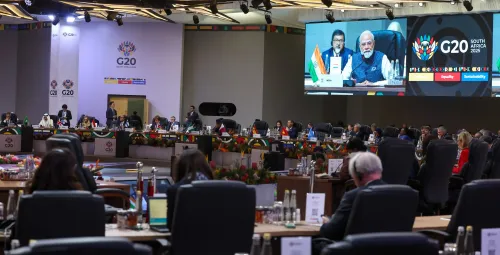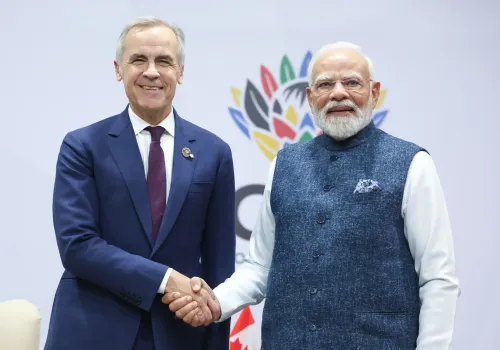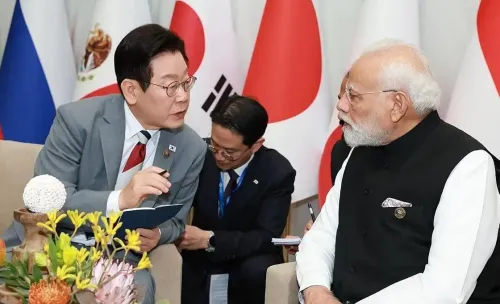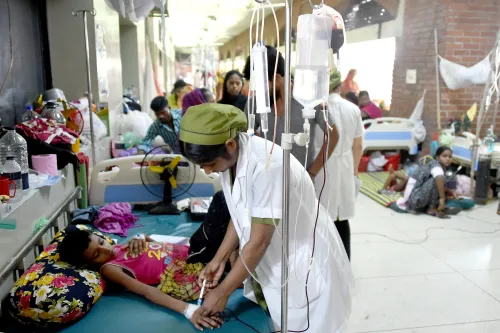Will Global Leaders Heed Calls for Restraint After US Strikes on Iranian Nuclear Sites?
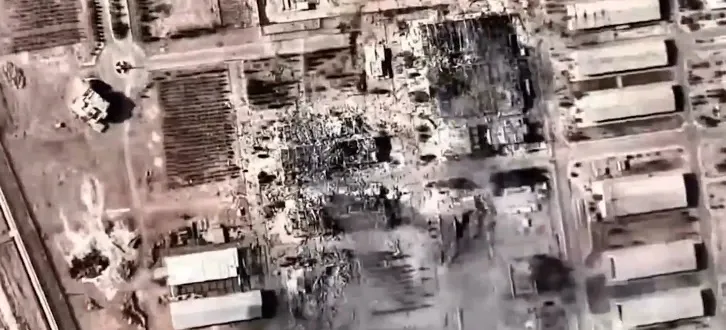
Synopsis
Key Takeaways
- Global leaders are calling for restraint and diplomacy following US strikes.
- The situation in the Middle East remains highly volatile.
- Countries express concern about the potential for further escalation.
- Diplomatic solutions are essential to prevent a broader conflict.
- International cooperation is needed to address nuclear threats.
New Delhi, June 22 (NationPress) The recent US military actions targeting Iranian nuclear sites have sparked a significant response from the global community, with leaders emphasizing the need for restraint and a shift back to diplomatic negotiations amidst escalating tensions in the Middle East.
UK Prime Minister Keir Starmer voiced his backing for the US initiative while highlighting the necessity of maintaining regional peace.
"Iran's nuclear ambitions pose a serious threat to global security. It's crucial that Iran is prevented from developing nuclear weapons, and the US has acted to mitigate that danger," he commented on X.
"The Middle East remains a precarious region, and ensuring stability is vital. We urge Iran to engage in discussions to find a diplomatic resolution to this crisis," he added.
Former UK Prime Minister Rishi Sunak expressed similar sentiments, supporting the military strikes.
"The Iranian government has long represented a danger to both regional and worldwide security. The thought of Iran acquiring nuclear weapons is intolerable," he stated, adding, "Israel and the US have taken decisive measures to confront this threat and deserve our support and gratitude for their actions."
UK Defence Secretary John Healey clarified that while the UK did not take part in the operation, they have implemented measures to safeguard security.
"The US has acted to mitigate the serious threat that Iran poses to global security," Healey shared.
"The UK was not involved in these strikes. My foremost concern is the safety of UK personnel and installations. We have heightened force protection measures and deployed additional jets this week," he concluded.
Saudi Arabia expressed its worries about potential escalation, stating it is monitoring the situation "with considerable concern."
In an official statement, the Kingdom underscored the need for restraint and urged the international community to "make every effort" to de-escalate the situation and pursue a political resolution.
Australia, which has recently evacuated its diplomatic staff and shuttered its embassy in Tehran, reiterated its commitment to diplomacy.
"We have consistently stated that Iran's nuclear and missile programs threaten international peace and security," an official statement asserted.
"We recognize the US President's call for peace. The security landscape in the region is exceedingly unstable. We continue to advocate for de-escalation, dialogue, and diplomacy," the statement continued.
Qatar's foreign ministry cautioned that the ongoing tensions could lead to catastrophic outcomes.
"The current dangerous escalation in the region may have severe implications at both regional and international levels," the statement warned.
"We urge all parties to exercise wisdom, restraint, and to avert further escalation," it added.
Oman's Foreign Ministry issued a strong rebuke of the US strikes, labeling them a "serious violation" of international law and the UN Charter.
"The Sultanate of Oman condemns this unlawful aggression and calls for immediate and comprehensive de-escalation," the statement read.
Oman also reaffirmed the right of nations to develop nuclear programs for peaceful purposes under international supervision.
Ireland's Deputy Prime Minister Simon Harris warned of an "extremely dangerous cycle of escalation" and stressed the urgency of diplomatic efforts.
"This has been the focus of my discussions with EU partners and regional countries since this crisis began," Harris remarked.
"Europe, including Ireland, stands united in our firm belief that Iran should not be permitted to possess nuclear weapons. The resolution to this issue has always been through negotiation. Any other approach is far too perilous," he added.
Latvian President Edgars Rinkevics emphasized the significance of regional stability, stating on X, "Iran's nuclear program poses a threat to both global and regional security. The US has taken measures to counter this threat. Iran must not be allowed to possess nuclear weapons."
"All parties should return to negotiations to achieve a diplomatic solution," he concluded.
Belgian Deputy Prime Minister Maxime Prevot also weighed in, stating, "The theocratic regime of the Iranian mullahs must not be allowed to develop nuclear weapons, as it poses a threat to international security."
"We must avoid further escalation, which hinders essential work towards a diplomatic resolution that guarantees this does not happen. I recall Belgium's support for the IAEA in this endeavor. I reiterate my call for maximum restraint and for all parties to return to the negotiating table. The EU has a role to play in facilitating a solution. I will discuss the situation with my colleagues tomorrow," he added.
As tensions rise following the US strikes, the global community continues to advocate for de-escalation and a prompt return to diplomatic engagement to avert a full-scale regional conflict.

